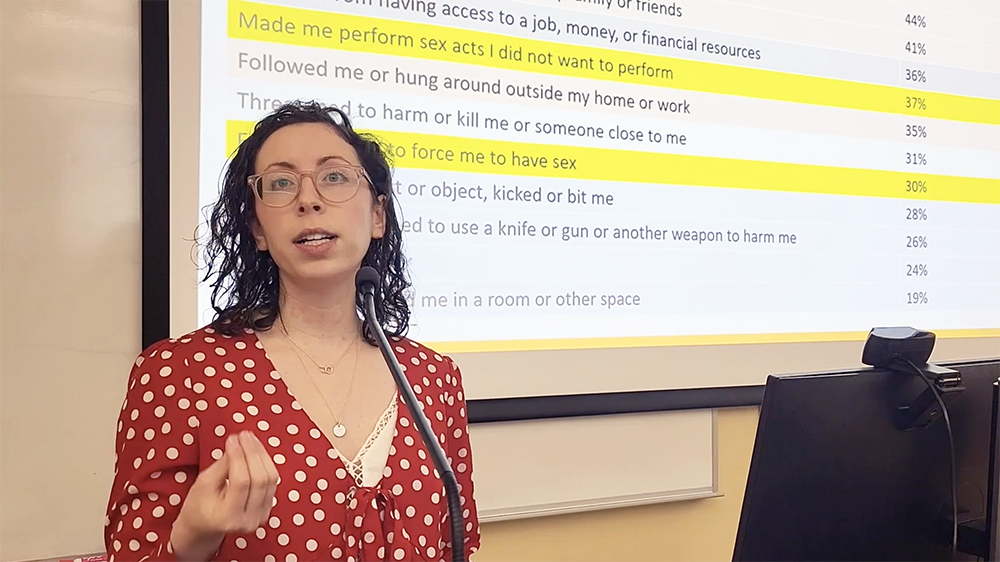‘Systemic’ lack of support for domestic-violence victims, study says
Nova Scotia's health system ill-equipped to care for survivors, report indicates

caption
A woman told domestic-violence researchers she was unable to get treatment at an ER for "internal damage". The lead researcher says it's part of a systemic issue.Editor's Note
This story contains references to sexual assault.
Nova Scotia’s healthcare system lacks support for survivors of violence against women with more than half of surveyed workers revealing they knew little to nothing about how to care for them, a study indicates.
More than three-quarters of Nova Scotia healthcare professionals told researchers they received minimal training to respond to domestic or sexual violence, according to the Interprovincial Violence Against Women (IPV) Project.
Respondents said their training included reading their employer’s protocols or one to three hours of learning in a four-year university degree.
Lead researcher Alexa Yakubovich released the findings at Dalhousie on Feb. 9 and shared the story of a woman who went to an ER to check for internal damage.
The woman told researchers that triage nurses refused to get a Sexual Assault Nurse Examiner who was “just around the corner.” The study participant said she was “visibly shaking” as she tried to explain her situation to healthcare workers, and that she eventually left without getting treatment.
“I don’t share this to put the blame on individual healthcare providers,” said Yakubovich. “Really, this is a systemic issue.”

caption
Dalhousie researcher Alexa Yakubovich presented preliminary data from the Interprovincial Violence Against Women (IPV) Project on Feb. 9, 2024. It was the first time Yakubovich presented her team’s Nova Scotia research findings.The Dalhousie epidemiology professor added intimate partner violence has severe consequences for women’s health.
“It can lead to injury, it can lead to mental health problems, and it can also lead to chronic pain and disease, among other conditions,” she said. “So understanding the extent to which people are experiencing violence is directly related to their health needs.”
Yakubovich said COVID-19 policies forced many survivors into isolation with their abusers, and that the financial strain of the 2020 lockdown left survivors with “little means of escaping that violence.”
“For many survivors, it is a re-traumatizing experience.”
National study continues
The Nova Scotia findings are the latest section of a national intimate partner violence study that began in the Toronto area. Last year, the Public Health Agency of Canada published recommendations based on Yakubovich’s study in that region.
Her team investigated how supports for survivors of violence against women were adapted following the pandemic and how well the changes met the women’s needs.
Researchers surveyed 650 survivors, staff working in supportive services as well as 1,600 healthcare professionals across Nova Scotia.
“To our knowledge, it’s one of the largest samples for the violence against women sector that has been conducted in Canada,” Yakubovich told The Signal following her presentation. “It’s also the largest survey that’s been conducted with health professionals in the field as well in Canada.”
She said the study is preliminary and that Nova Scotia, one of the research team’s partners, has yet to implement the findings.
Karen Mutyabule, Health Equity Advisor for the Government of Nova Scotia, attended the release event and told The Signal that the government is curious about the survey. She would not say if or when the province might act upon the findings.
Yakubovich said researchers are beginning a second round with focus groups and interviews.
“The level of engagement we see, I think, speaks to the importance of these issues.”
About the author
Serra Hamilton
...
